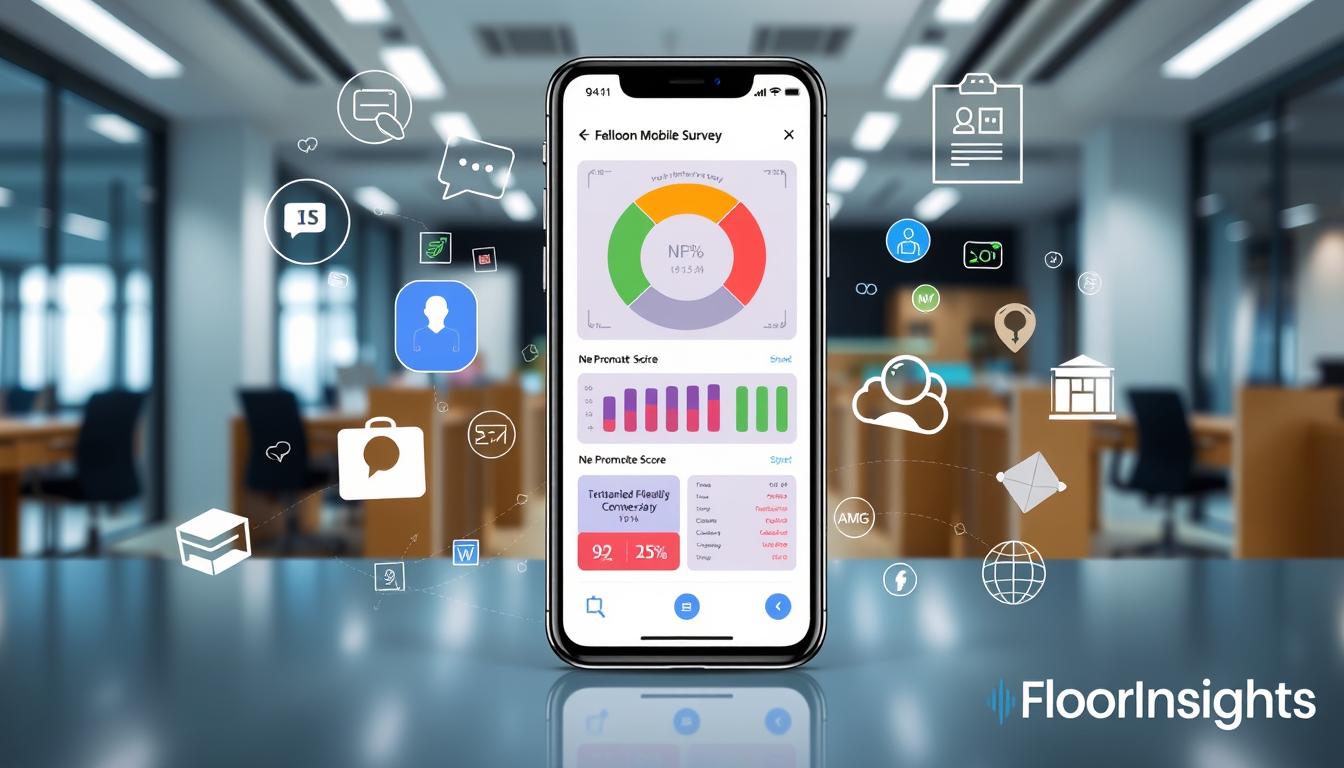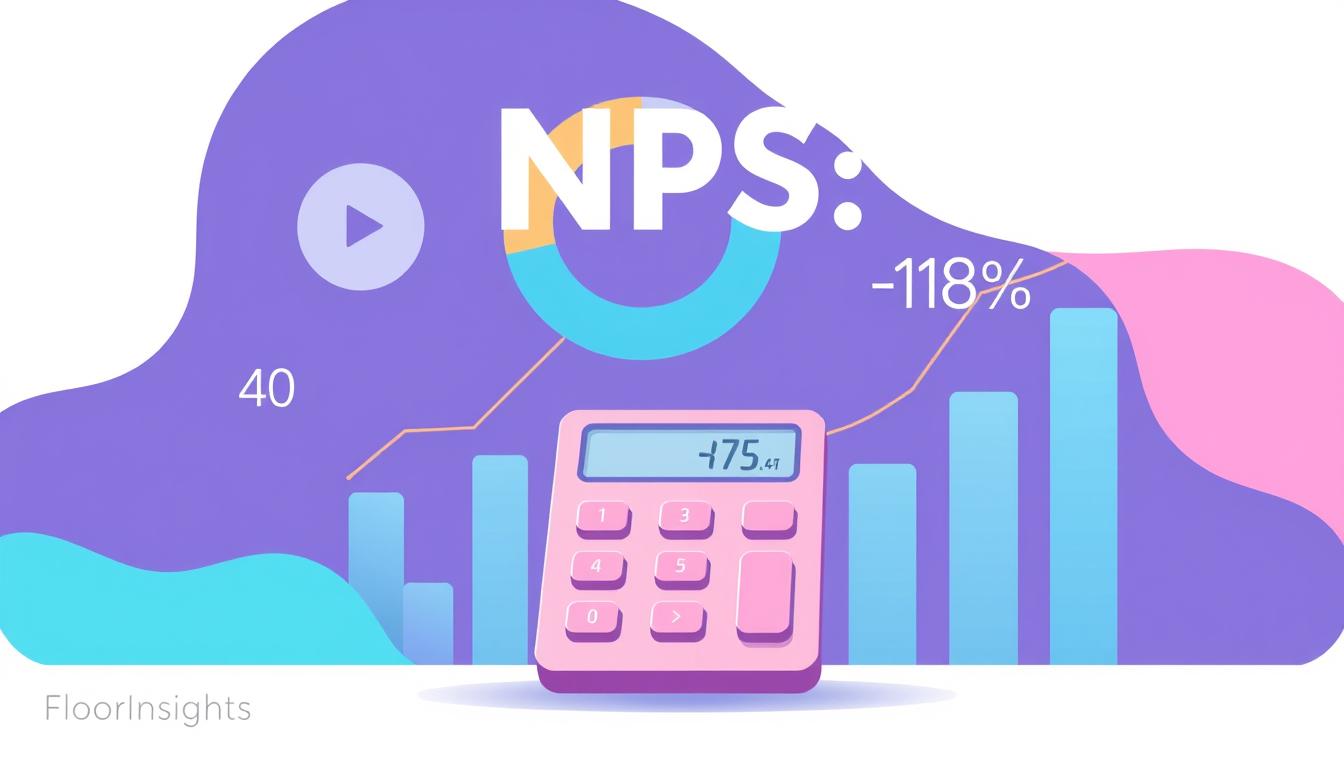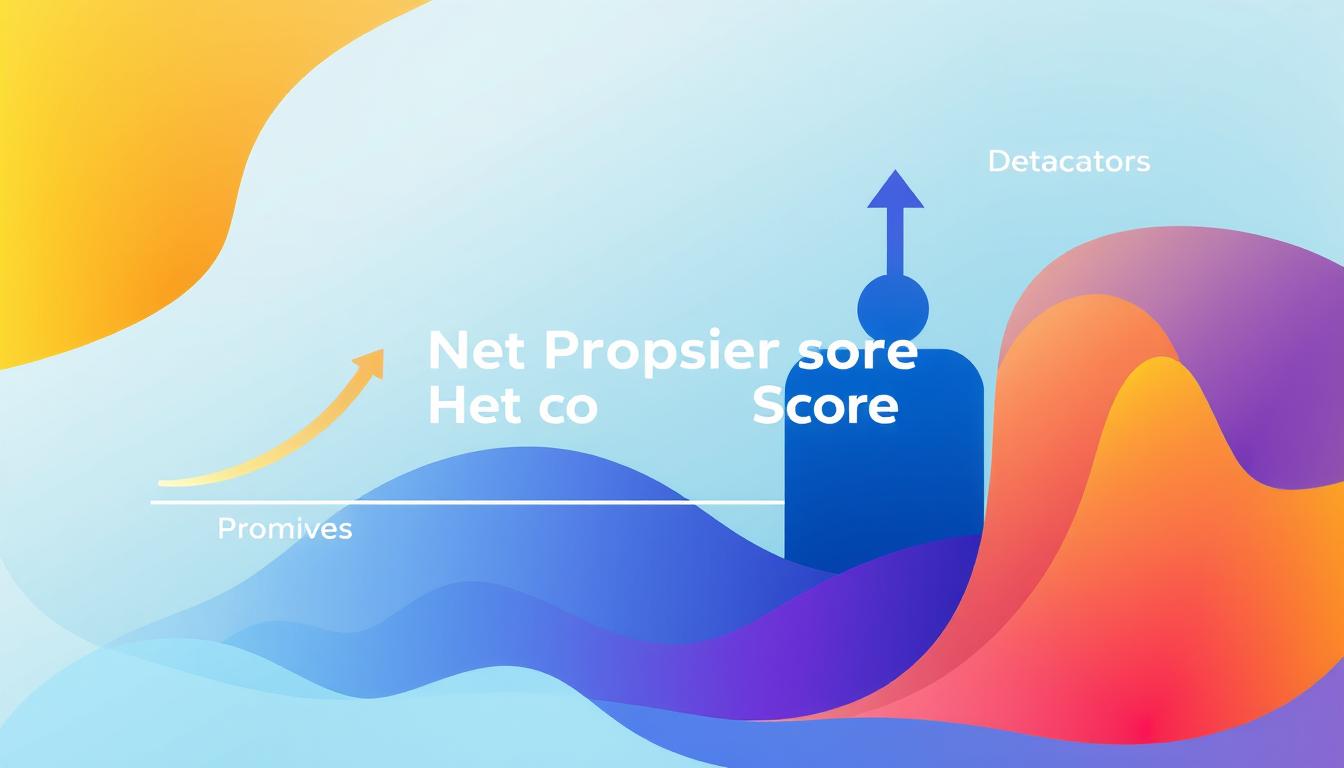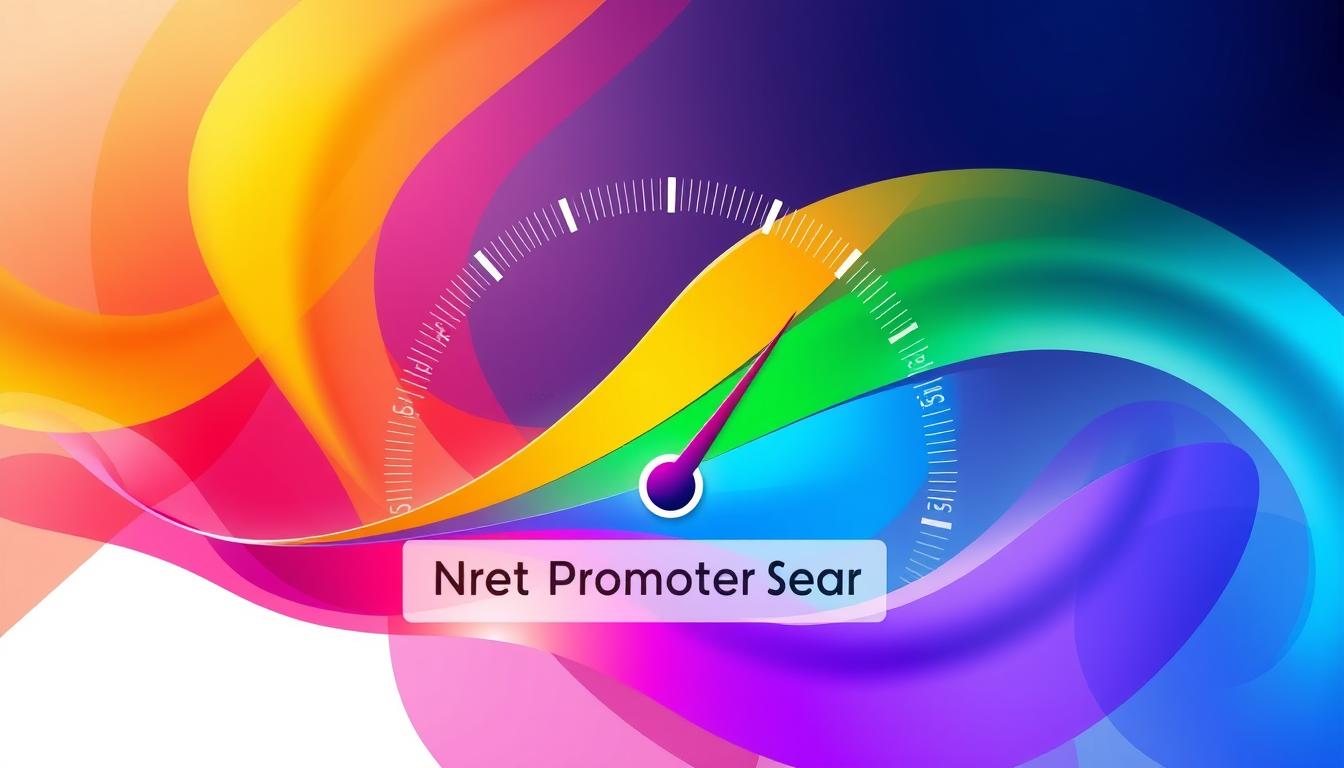The rise of mobile technology in India has revolutionized the way businesses conduct customer feedback collection. With the widespread use of smartphones, mobile survey tools have become indispensable for administering Net Promoter Score (NPS) surveys. Companies rely on these apps to garner valuable insights into consumer behavior and loyalty, all with the objective of enhancing customer experiences and reinforcing retention rates. This section delves into how mobile apps are reshaping the landscape of NPS survey collection and why they are increasingly preferred over traditional approaches.
Key Takeaways
- Mobile technology is essential for customer feedback collection in India.
- Smartphone apps enable efficient Net Promoter Score surveys.
- Mobile survey tools capture consumer insights and loyalty data.
- Enhanced customer experiences lead to higher retention rates.
- Mobile apps are increasingly favored over traditional NPS methods.
Introduction to NPS Surveys
Net Promoter Score (NPS) surveys serve as a vital benchmark for gauging customer satisfaction and loyalty. Their simplicity allows companies to effectively measure the propensity of customers to recommend their products or services, helping businesses enhance various customer experience metrics.
What is NPS?
NPS is a straightforward metric that captures a customer’s likelihood to recommend a business on a scale from 0 to 10. Customers are categorized into Promoters, Passives, and Detractors based on their scores, helping in the analysis of customer sentiment and loyalty.
The Importance of NPS in Customer Experience
Understanding NPS is crucial for businesses aiming to boost customer satisfaction and foster customer loyalty. This metric not only provides insights into overall customer satisfaction but also plays a pivotal role in advocacy marketing. By leveraging NPS data, companies can pinpoint areas that need improvement and drive strategic initiatives to enhance customer experiences.
The Rise of Mobile Apps in Customer Feedback
In today’s digital era, mobile technology has revolutionized how businesses collect and utilize customer feedback. Companies across the globe, especially in India, are increasingly adopting mobile apps to streamline their feedback mechanisms. This transition from traditional methods like phone calls and paper forms to mobile apps is driven by the need for improved customer engagement and more efficient data collection processes.
Mobile apps offer a contemporary and efficient channel for collecting customer feedback. They enable businesses to capture spontaneous and authentic responses from customers, providing real-time insights that are crucial for strategic decision-making. By leveraging mobile technology, companies can foster continuous dialogue with their customers, thereby enhancing customer engagement and satisfaction.
In India, the adoption of mobile apps for feedback mechanisms is gaining momentum. The widespread use of smartphones and the internet has made these tools accessible to a broader audience, allowing businesses to reach customers more effectively. Moreover, mobile apps facilitate a convenient and user-friendly platform for customers to share their experiences and opinions, ultimately contributing to more reliable and actionable feedback.
Furthermore, the integration of mobile technology in feedback mechanisms enables the collection of diverse data points, which can be analyzed to identify trends and areas for improvement. As a result, businesses can make informed decisions to enhance their products and services, ultimately driving customer loyalty and growth.
Benefits of Using Mobile Apps for NPS Surveys
Mobile apps offer unparalleled accessibility and convenience for customers, prompting higher response rates and more timely feedback. These benefits significantly enhance the effectiveness of NPS surveys, making them a superior choice for collecting valuable insights.
Accessibility and Convenience
One of the primary advantages of using mobile apps for NPS surveys is the ease of access they provide. By leveraging the ubiquitous nature of mobile devices, businesses can reach customers anytime, anywhere. This accessibility ensures a seamless user experience, encouraging customers to participate in surveys without any hassle.
Real-time Feedback
The immediacy of mobile platforms allows for real-time analytics, enabling businesses to gather customer feedback instantly. This capability is crucial for companies that need to act quickly on instant insights. By utilizing mobile apps, businesses can monitor customer sentiment in real-time and respond proactively to any issues that arise.
Enhanced Customer Engagement
Mobile apps also offer features that boost customer engagement. From push notifications to personalized messages, these platforms ensure that customers are not only aware of the surveys but also motivated to complete them. This active engagement leads to more accurate and actionable data collection, enriching the overall user experience.
These benefits are underscored by the following comparative data, illustrating the effectiveness of mobile apps for NPS surveys compared to traditional methods:
| Benefit | Mobile Apps | Traditional Methods |
|---|---|---|
| Accessibility | High | Moderate |
| Real-time Analytics | Yes | No |
| Customer Engagement | Enhanced | Limited |
| User Experience | Seamless | Fragmented |
| Instant Insights | Available | Delayed |
Overall, utilizing mobile apps for NPS surveys provides businesses with a distinct advantage in gathering actionable customer feedback. The integration of real-time analytics with improved user experience and instant insights makes mobile apps an invaluable tool for enhancing customer satisfaction and loyalty.
How Mobile Apps Improve Customer Loyalty Measurement
Mobile apps have revolutionized how businesses in India measure and enhance customer loyalty. They facilitate direct communication, allowing companies to gather real-time feedback and ensure personalized engagement. This approach helps in creating a robust framework for loyalty measurement. Through tailored marketing strategies, companies can now engage with customers on a more personal level.
Direct Interaction with Customers
One of the standout features of mobile apps is their ability to foster direct interaction with customers. This engagement is more immediate and impactful, enabling businesses to swiftly address concerns and improve service quality. By leveraging these interactions, companies can achieve a more accurate loyalty measurement, essential for sustaining customer satisfaction.
Personalized Surveys
Personalized surveys are another key advantage of using mobile apps. Unlike generic surveys, these are tailored to individual experiences, ensuring more meaningful responses. Personalized engagement through these surveys results in deeper insights into customer preferences and behaviors, aiding in more effective tailored marketing efforts. This, in turn, helps businesses in India to refine their strategies and boost customer loyalty.
Case Studies: Mobile Apps Boosting Customer Satisfaction
Implementing mobile apps to enhance customer feedback strategy has been instrumental in driving success stories across various companies in the India market. By leveraging advanced features to collect NPS data, these companies have significantly improved customer satisfaction.
One notable example is Paytm, which utilized its mobile app to efficiently gather customer feedback. By integrating NPS surveys directly into their app, Paytm created a seamless user experience, resulting in a 30% increase in response rates. This data allowed Paytm to make informed decisions to enhance their services.
Similarly, Swiggy’s mobile app demonstrated the effectiveness of a refined customer feedback strategy. Swiggy’s app incorporates real-time NPS surveys, enabling the company to swiftly address any customer issues. This approach not only improved satisfaction but also boosted customer loyalty significantly.
| Company | Strategy | Outcome |
|---|---|---|
| Paytm | Integrated NPS surveys in-app | 30% increase in response rates; enhanced service decisions |
| Swiggy | Real-time NPS surveys | Improved customer satisfaction and loyalty |
| Flipkart | Personalized feedback mechanism | Enhanced user engagement; targeted service improvements |
By analyzing these success stories, it’s evident that employing mobile apps for NPS surveys is a proven customer feedback strategy. Companies in the India market have reaped substantial benefits, driving long-term satisfaction and loyalty.
Features of Effective Mobile NPS Survey Apps
Effective mobile NPS survey apps are revolutionizing how we collect customer feedback. Developers in India are leading the way, creating innovative solutions that combine thoughtful app design with robust data protection measures. Below, we explore the key features that make these applications stand out.
User-friendly Interface
A user-friendly interface is fundamental for any mobile app, including NPS survey tools. This feature ensures that users can navigate the app effortlessly, making the survey-taking process quick and painless. When app design is intuitive, it encourages higher response rates and better user engagement.
Data Security and Privacy
Data protection is paramount when collecting sensitive customer information. The best mobile NPS survey apps implement stringent data security and privacy measures to safeguard user data. This commitment to data protection builds trust with respondents, leading to more reliable feedback.
Customizable Survey Templates
The ability to create customizable survey templates is another critical feature of effective NPS survey apps. This allows businesses to tailor their surveys to better meet their specific needs and objectives. In India, developers are excelling in survey customization, offering versatile tools that enhance the survey experience.
Best Practices for Implementing NPS Surveys via Mobile Apps
When it comes to effectively running an NPS campaign through mobile apps, adopting best practices can significantly boost the quality of actionable feedback collected from customers. Below, we detail several implementation strategies that businesses can employ to ensure their NPS surveys are successful.
- Clear Goals: Define clear objectives for your NPS campaign. Understand what you are trying to measure, whether it’s overall customer satisfaction, loyalty, or specific service experiences.
- User-Friendly Surveys: Ensure that the NPS survey is simple and easy to navigate. A user-friendly interface encourages more responses, leading to higher participation rates and better-quality actionable feedback.
- Timing and Frequency: Don’t overwhelm customers with frequent surveys. Choose the optimal timing, such as after a significant customer interaction or purchase, to solicit actionable feedback.
- Engagement Techniques: Utilize push notifications and in-app messages to remind customers to participate in the survey. This method is effective for maintaining engagement without intrusiveness.
- Data Interpretation: Correctly interpreting the data gathered from your surveys is crucial. Segregate responses based on key customer segments to derive meaningful insights and improve satisfaction.
| Best Practices | Benefits |
|---|---|
| Clear Goals | Helps in focusing the survey for relevant and valuable insights. |
| User-Friendly Surveys | Increases participation rates by making it easy for customers to respond. |
| Optimal Timing and Frequency | Prevents survey fatigue, ensuring responses are thoughtful and genuine. |
| Engagement Techniques | Maintains customer interest and improves survey completion rates. |
| Data Interpretation | Facilitates actionable insights that can drive customer satisfaction improvements. |
By adopting these implementation strategies, businesses can maximize the effectiveness of their mobile-based NPS campaign, ensuring that they collect robust, high-quality actionable feedback from their customers. Implementing these best practices will ultimately lead to a deeper understanding of customer needs and enhance overall customer experiences.
Challenges in Mobile NPS Survey Collection and Solutions
While mobile apps are revolutionizing how we gather customer feedback, implementing NPS surveys via these platforms in India comes with its unique set of obstacles. Let’s explore these issues and provide actionable strategies to overcome them, ensuring response optimization and robust data validation.

Technical Issues
Technical glitches can significantly impact the usability and effectiveness of NPS surveys. Apps crashing, slow load times, and compatibility issues across different devices are common challenges. To address these, it’s essential to ensure that your mobile app is rigorously tested across various devices and operating systems. Additionally, providing regular updates can help mitigate these technical hurdles.
Low Response Rates
One of the key challenges in mobile NPS survey collection is achieving high response rates. Factors contributing to low engagement include survey length, timing, and perceived relevance. To enhance response rates, consider optimizing the survey length, sending reminders, and personalizing the content to make it more relevant to the user. Implementing these response optimization strategies can significantly boost participation.
Data Accuracy
Accurate data is crucial for effective decision-making. However, data validation can be challenging due to manual entry errors, duplicate responses, and invalid data. To ensure data accuracy, implement automated data validation processes that check for inconsistencies and errors in real-time. This approach can help in maintaining the integrity of the feedback collected.
Here’s a table summarizing the challenges and proposed solutions:
| Challenge | Proposed Solution |
|---|---|
| Technical Issues | Rigorous testing and regular updates |
| Low Response Rates | Optimizing survey length and personalization |
| Data Accuracy | Automated data validation processes |
The Role of Mobile Apps in Customer Retention Strategies
Mobile apps have become indispensable in modern customer retention strategies, especially in markets like India where mobile internet penetration is rapidly increasing. By leveraging NPS data gathered through mobile apps, businesses can transform customer feedback into actionable insights that enhance engagement tactics. Through ongoing interaction directly via a customer’s smartphone, companies can create more meaningful connections and drive long-term loyalty.
Implementing loyalty programs through mobile apps offers a seamless and efficient method to reward repeat customers. Loyalty programs can be customized based on individual preferences and behaviors, making them more attractive and effective. This personalization is core to maintaining customer retention, as it shows customers that their unique tastes and preferences are valued. Regular updates and notifications ensure that engagement remains high, prompting continued interaction with the brand.
In the Indian market, where diversity and cultural nuances play a significant role in consumer behavior, mobile apps provide the flexibility needed to cater to varied customer segments. Localized features and language options can help in making the app more approachable for a broader audience. By aligning mobile app strategies with local preferences and continuously engaging users through targeted retention campaigns, businesses can significantly boost their customer loyalty in India.
FAQ
What is a Net Promoter Score (NPS)?
Net Promoter Score (NPS) is a customer loyalty metric that measures the likelihood of customers recommending a company’s product or service to others. It is used to gauge overall customer satisfaction and predict business growth.
Why are mobile apps effective for collecting NPS surveys in India?
The widespread use of smartphones in India has made mobile apps an efficient tool for gathering customer feedback, including NPS surveys. Mobile apps offer accessibility, convenience, and the ability to capture real-time feedback, providing companies with valuable insights into customer loyalty and experience.
How does NPS contribute to improving customer experience?
NPS surveys provide a direct measurement of customer satisfaction and loyalty. These insights help businesses identify strengths and areas for improvement, enabling them to enhance the customer experience, drive customer retention, and promote customer advocacy.
What are the benefits of using mobile apps for NPS surveys?
Mobile apps provide numerous benefits for NPS survey collection, including accessibility and convenience for customers, real-time analytics, instant feedback, and enhanced customer engagement. These features lead to higher response rates and more actionable insights.
What challenges might businesses face in mobile NPS survey collection?
Common challenges include technical issues, low response rates, and concerns about data accuracy. Solutions involve optimizing app performance, employing strategies to boost response rates, and implementing robust data validation processes to ensure accurate results.
How do mobile apps improve customer loyalty measurement?
Mobile apps enable direct interaction with customers and allow for personalized surveys, creating meaningful engagement. This personalization helps businesses understand individual customer experiences better and tailor their loyalty measurement strategies accordingly.
What features make mobile NPS survey apps effective?
Effective mobile NPS survey apps have a user-friendly interface, stringent data security and privacy measures, and customizable survey templates. These features ensure ease of use, protect respondent information, and allow businesses to tailor surveys to their specific needs.
Can you provide examples of successful NPS survey implementation in India?
Various companies in India have successfully implemented mobile apps for NPS surveys, leading to improved customer satisfaction and retention. Case studies illustrate how strategies tailored to the Indian market have yielded positive results in customer feedback management and business growth.
What are the best practices for implementing NPS surveys via mobile apps?
Best practices include designing user-friendly surveys, employing effective communication strategies to encourage participation, analyzing real-time feedback, and using the insights to improve customer experience. These steps help in collecting actionable feedback for business improvement.
How do mobile apps play a role in customer retention strategies?
Related Posts
- How to Choose the Right NPS Software for Your Business
- The Ethical Considerations of Collecting NPS Data – NPS Ethics and Data Privacy
- The Role of NPS in Managing Customer Relationships During a Crisis – NPS in Crisis Management
- Using NPS to Identify Key Opportunities in the Banking Sector – NPS and Financial Services






